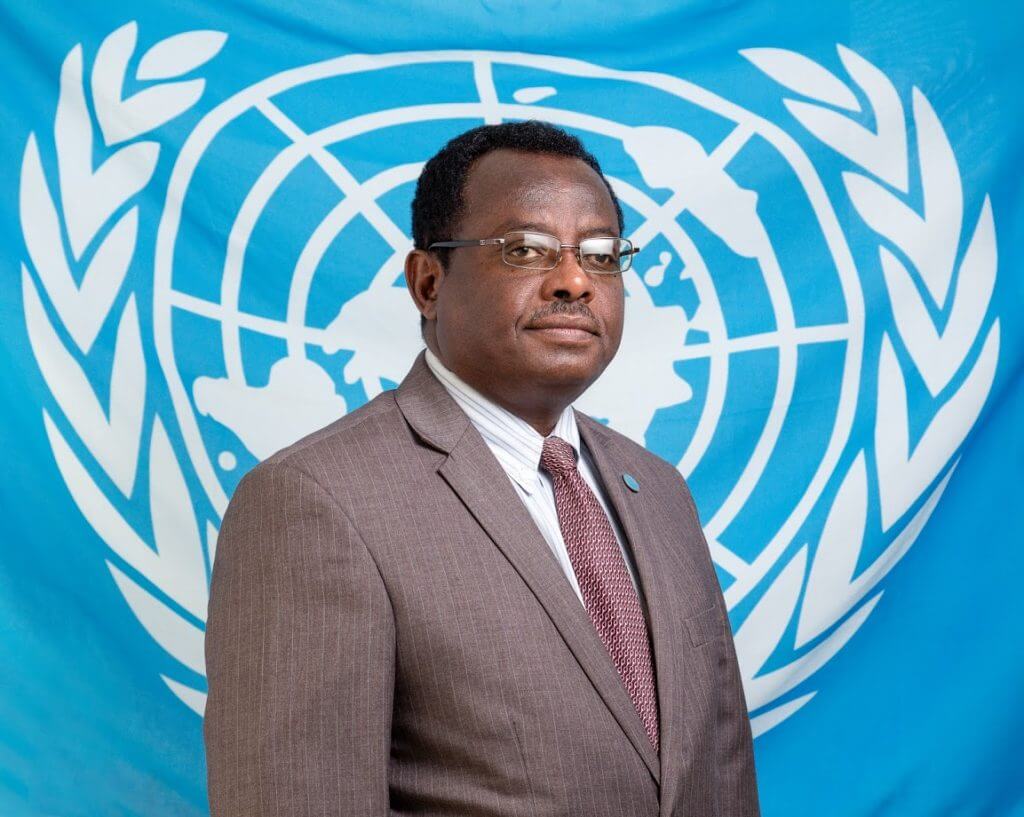
Our Projects are
Transforming African Trade
Quick Contacts
2nd Floor, Fidelity Insurance Centre Waiyaki Way, Westlands

Opinion piece by Abebe Haile-Gabriel
Assistant Director-General and Regional Representative for Africa
Food and Agriculture Organization of the United Nations
March 8 is marked around the world as International Women’s Day. For many women in Africa, including those in the agriculture sector, it will be just another day where invisible barriers hold them back from their true potential.
At the United Nations Food and Agriculture Organization, we believe that inclusivity and fairness are key to achieving sustainable development in agriculture, and that this objective cannot be obtained without accounting for the central role played by women in the sector, including in agriculture markets, trade and value-chain development.
The African Continental Free Trade Area or AfCFTA is a major opportunity to boost economic growth, reduce poverty, and broaden economic inclusion. We must seize this opportunity for gender equality as well.
The agricultural and agribusiness market in Africa is undergoing rapid expansion, with its value estimated to reach USD 1 trillion by 2030, according to the World Bank. This represents an immense potential for Africa to boost food and non-food trade within the continent and enhance food security and resilience for all.
The AfCFTA has opened up immense new market and trading opportunities to capitalize on this potential. The agreement, signed by 54 African Union member states and covering a market of 1.2 billion consumers, establishes the largest free-trade area in the world since the creation of the World Trade Organization almost 30 years ago.
The agreement creates a regional single market aiming to enhance intra-African trade, facilitate investment, improve continental economic integration, and boost the competitiveness of its member countries both within the continent and in the global market.
However, this potential cannot be realized without empowering women to fully participate in the AfCFTA.
Women are crucial to Africa’s agricultural development
Women have and continue to play a crucial role in agriculture in the region. They contribute significantly to food production, processing and marketing, household food security and nutrition, natural resources management and conservation of biodiversity in the face of climate change. In recognition of women’s roles, this year’s International Women’s Day theme focuses on the importance of gender equality for sustainability.
Women in Africa operate all along agrifood value chains. They are producers, traders and agriculture entrepreneurs and stand to benefit greatly from the new opportunities presented by the AfCFTA.
Some of the many benefits that women can reap by trading under the AfCFTA include: moving up the value chain, leveraging networks of women’s associations, upgrading their businesses, and tapping into new markets and investment opportunities.
The roll out of the AfCFTA also presents potential risks for women traders that need to be addressed. By creating new formal regulated markets, the AfCFTA will trigger a structural shift in the way certain economic activities and businesses are conducted in Africa.
Currently, 85 percent of economic activity in Africa is carried out in the informal sector where women account for nearly 90 percent of the informal labor force. In addition, at least 30-40 percent of total intraregional trade in the region is composed of informal cross-border trade, the overwhelming majority of which, about 60-70 percent, is accounted for by women who are owners of mainly micro, small and medium enterprises.
Due to this concentration of women in the informal sector, the formalization of trading practices, and the creation of new formal regulated markets catalyzed by the AfCFTA has the potential to impede women traders’ access to the new market, investment and business opportunities that the free trade area promises.
In fact, the specific challenges faced by women and the importance of explicitly targeting them for inclusion were highlighted in FAO and the African Union’s Framework for Boosting Intra-African Trade in Agricultural Commodities and Service which is a guide for policy and decision makers.
Gender must be considered in AfCFTA roll-out
While African women are overrepresented in cross-border trade, their specific needs and challenges are not adequately considered in relevant national and regional trade policy frameworks.
There is a risk that this gender-neutrality of the current enabling policy environment would be exacerbated by the new trade frameworks that will be elaborated under the AfCFTA.
The safeguard towards minimizing, if not avoiding, this imminent risk is to be intentional in considering gender dimensions in the implementation of the agreement.
The gender team at FAO’s Regional Office for Africa is undertaking a series of studies, collaborations and field activities to fully understand and share the gender dimension of the Africa regional trade environment and to support gender integration in the roll out of the AfCFTA,
A recent two-day event organized by FAO in Africa, in collaboration with the African Women Agribusiness Network (AWAN AFRIKA) and the UN International Trade Centre, explored further the different perspectives and actions needed to ensure an effective roll out of the AfCFTA that promotes equality and fairness for all players.
All agree that decisive action is needed at all levels: subnational, national and regional, and requires the involvement and cooperation of all relevant stakeholders from women’s groups, government ministries, regional bodies, the private sector and development partners.
On International Women’s Day and every day, FAO champions gender equality and women’s empowerment for a sustainable tomorrow. We are ready to work with all partners to ensure this ambition is embodied in the roll out of the AfCFTA.
Read original article
Disclaimer: The views and opinions expressed in this article are those of the authors and do not necessarily reflect the official policy or position of TradeMark Africa.